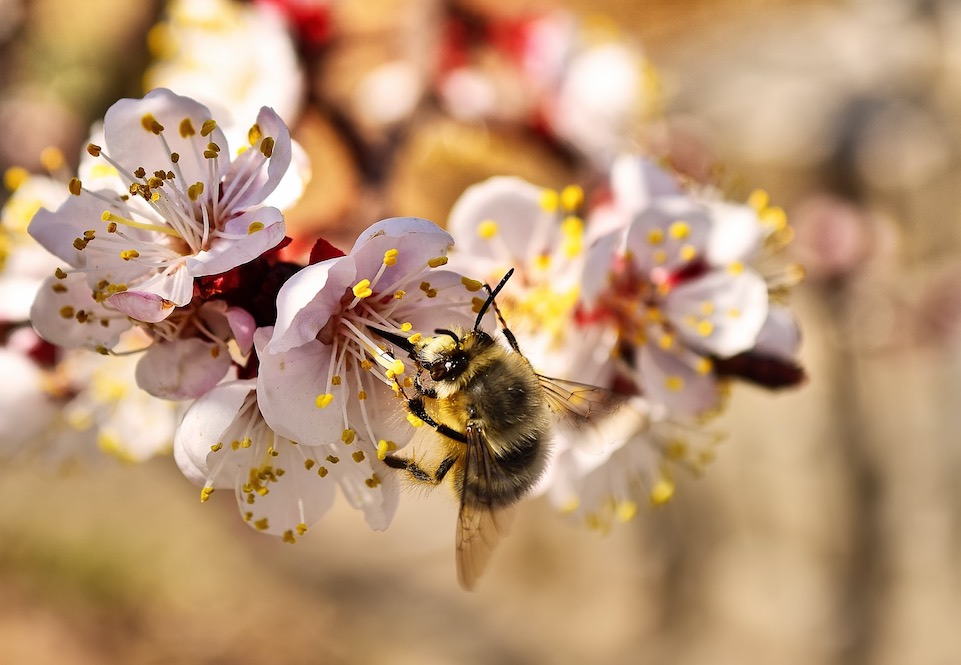
While Islanders might be enjoying the unseasonably warm weather, the early spring sunshine could be a problem for plants and pollinators.
New research has revealed that plants in the UK are now flowering almost a month earlier on average, as a result of changing temperatures. The researchers based their analysis on more than 400,000 observations of plants dating back to the mid-18th century, in locations from the Channel Islands to Shetland, and Northern Ireland to Suffolk.
The team from the University of Cambridge found that the average first flowering date from 1987 to 2019 is 26 days earlier than the average first flowering date from 1753 to 1986. The same period coincides with accelerating global warming caused by human activities.
These latest findings support an array of scientific research that consistently shows how first flowering dates have shifted over time.
Out of sync
Biologists have long been concerned about the effect of climate change on plant-pollinator interactions. Plants rely on bees for pollination, and bees need plants to supply nectar and pollen. If plants flower too early, the insects that usually feast on them may not be around to pollinate them. Likewise, if an insect usually feasts on April-flowering plants, they might emerge in April only to find the plant flowered in March.
If plants and pollinators become out of sync, there are consequences for both sides.
About one-fifth of the UK’s crops are pollinated by insects. A plant-pollinator mismatch could reduce crop yields, while gaps in resources like pollen and nectar could leave bees to go hungry.
The study’s lead author, Professor Ulf Büntgen, says the results are “truly alarming”.
‘Plants, insects, birds and other wildlife have co-evolved to a point that they’re synchronised in their development stages. A certain plant flowers, it attracts a particular type of insect, which attracts a particular type of bird, and so on. But if one component responds faster than the others, there’s a risk that they’ll be out of sync, which can lead species to collapse if they can’t adapt quickly enough.’
Playing catch-up?
The study also showed that herbs had the largest shift (32 days) compared to shrubs and trees. This could indicate that herbs are more responsive to climate change due to their shorter time between generations.
If plants can respond to climate change, could bees and other insects do the same? The jury is still out, although studies have seen some advances. Pollinating insects might respond to mismatches by swapping to forage on a different plant, or they might shift their range to overlap with flowering periods.
If global temperatures continue to increase at their current rate, Büntgen says that spring in the UK could eventually start in February. Many of the species that our forests, gardens and farms rely on could experience serious problems given the rapid pace of change.




